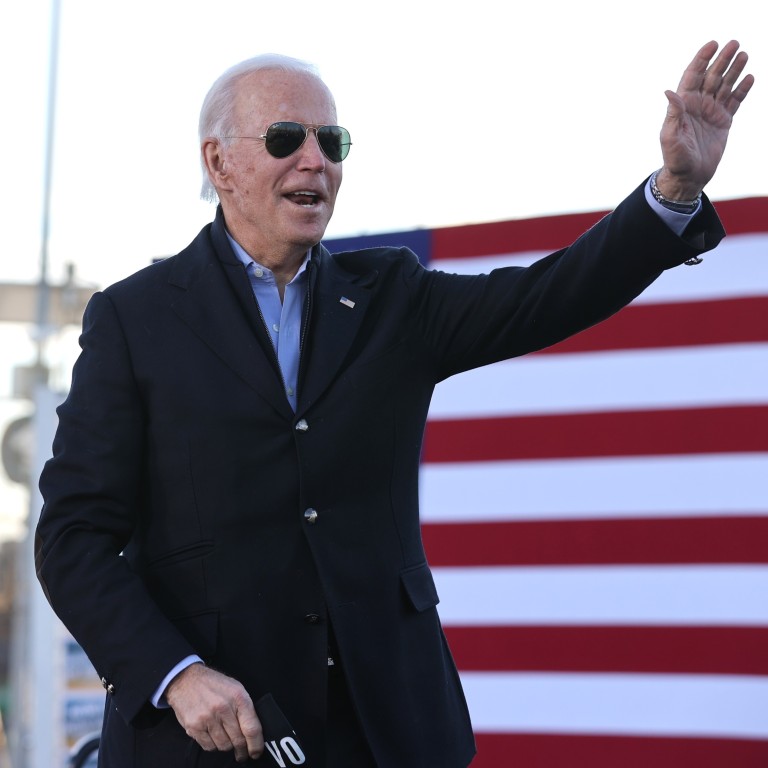
US-China trade war: expect Biden to change tactics towards Beijing, but not the goals
- It is clear Biden feels there is unfinished business from the Obama years that was not covered in Trump’s tariff-dominated approach to trade talks with China, and Beijing should not expect an end to tariffs any time soon
China-US trade tensions will not disappear when US President-elect Joe Biden succeeds outgoing President Donald Trump, but they will evolve. Trump’s tariff-heavy sledgehammer approach will give way to more subtle stratagems by the Biden administration intended to address perceived grievances. Beijing cannot realistically expect anything better than that.
In some respects, the Biden approach will reflect views formulated during his time as vice-president to Barack Obama. In his new book, A Promised Land , Obama writes that China’s economic rise has seen Beijing “evading, bending, or breaking just about every agreed-about rule of international commerce”.
Strong words, but Obama goes further. He makes reference to China’s use of non-tariff barriers, alleging it also engaged in the theft of US intellectual property and asserting Beijing “placed constant pressure on US companies doing business in China to surrender key technologies”.

06:04
US-China relations: Joe Biden would approach China with more ‘regularity and normality’
While Biden is his own man, his recent comments about China undoubtedly carry Obama-era echoes. “The best China strategy, I think, is one which gets every one of our – or at least what used to be our – allies on the same page,” Biden told the The New York Times at the start of December. “It’s going to be a major priority for me in the opening weeks of my presidency to try to get us back on the same page with our allies.”
Beijing will undoubtedly demur, but it seems clear Biden feels there is unfinished business from the Obama years that was not adequately covered in the Trump administration’s tariff-dominated approach to trade talks with China. Neither should Beijing expect Biden to immediately abandon all of Trump’s tariffs.
Beijing may well find that dealing with Biden on trade is more challenging than negotiating with Trump. At least with Trump, China could be fairly confident that the US was unlikely to reach out to other major economies to secure support for a common approach towards addressing perceived economic injustices.
The Biden administration will not be so insular. Former British prime minister Gordon Brown has described the president-elect as being “a natural conciliator”, whether that be in the domestic US arena or in the international community.

02:14
Japan-US hold joint military drills including cyberwarfare training as concerns about China grow
Meanwhile at home, and mindful of all the rancour surrounding the presidential election, Biden knows that if there is one issue around which the US Democratic and Republican parties can coalesce, it is a belief that the China-US trade relationship remains too skewed in Beijing’s favour.
The stage is set. Trump might be leaving the Oval Office, but China-US trade tensions will not disappear. It is just that the Biden administration will approach matters differently.
Neal Kimberley is a commentator on macroeconomics and financial markets

